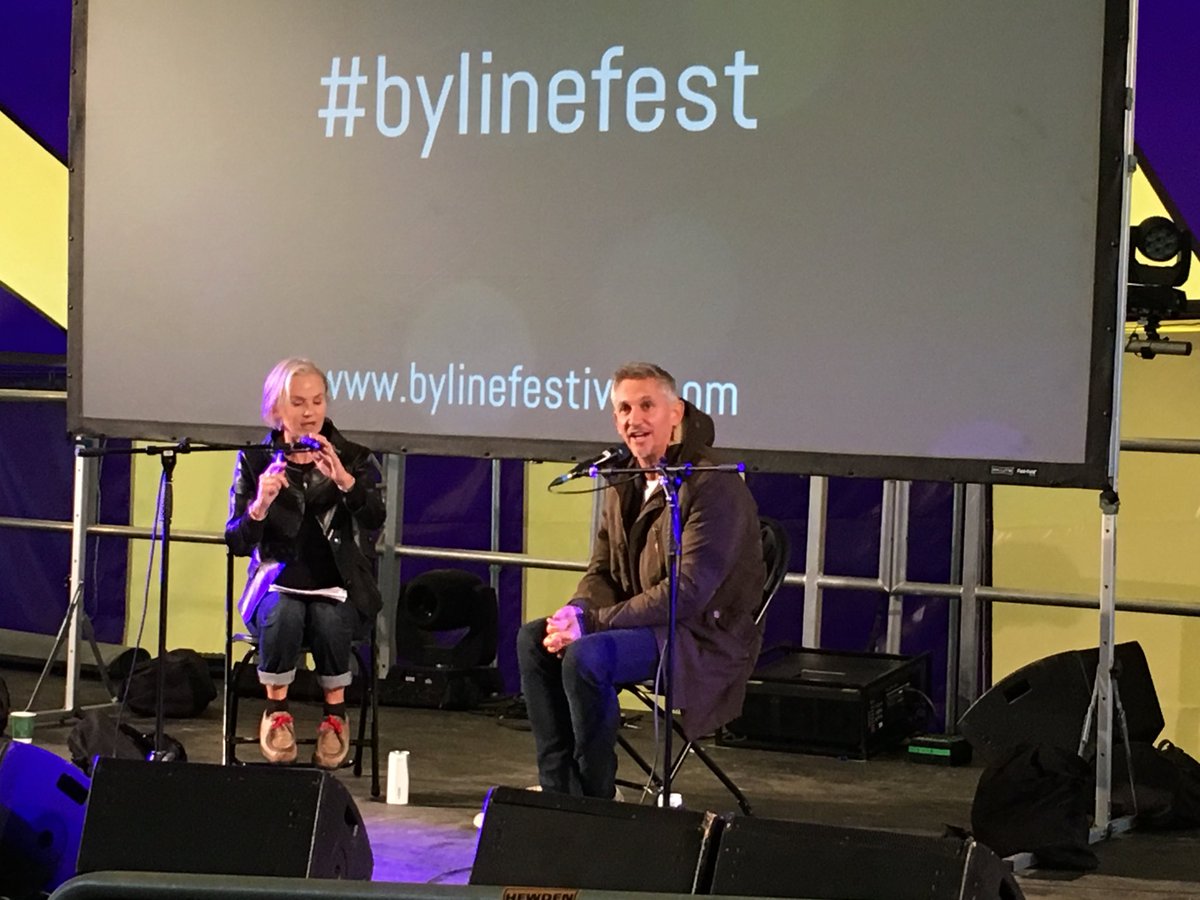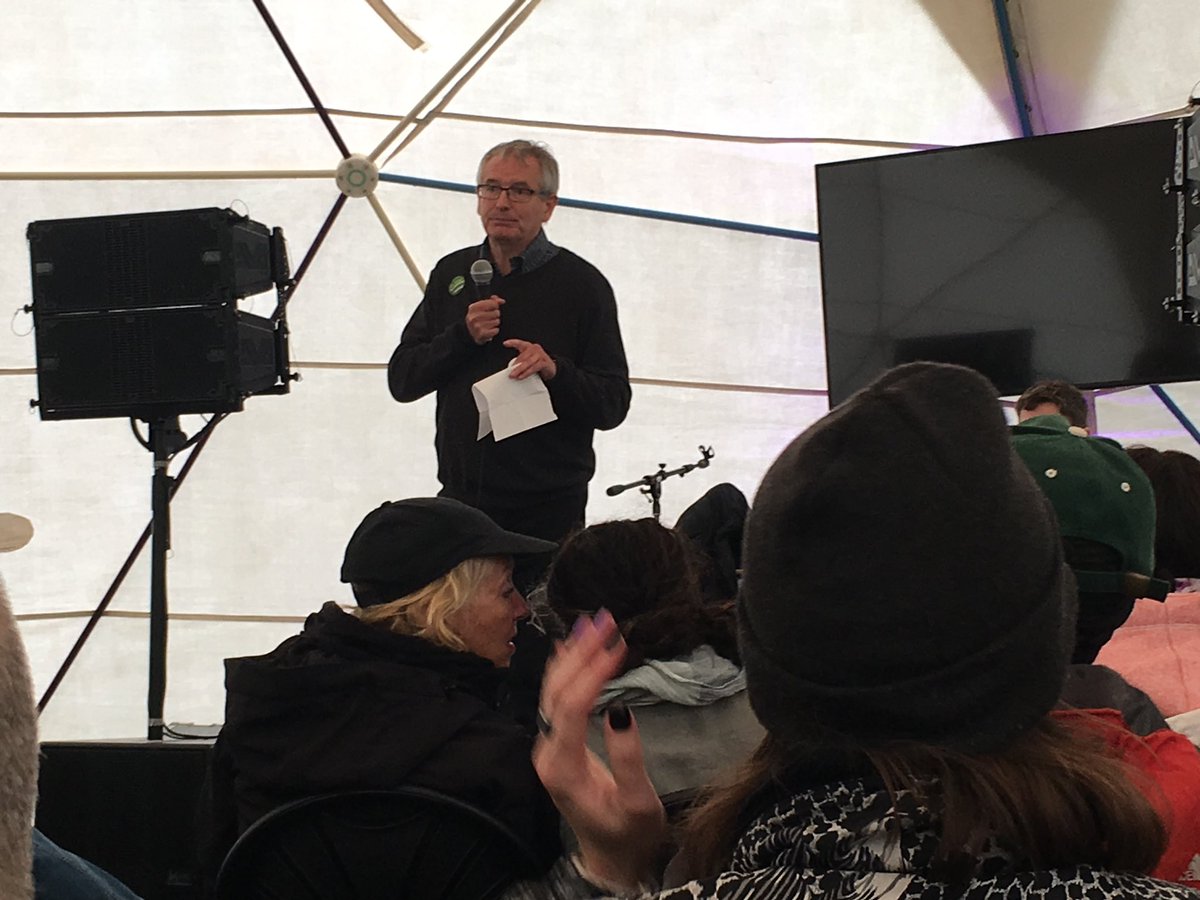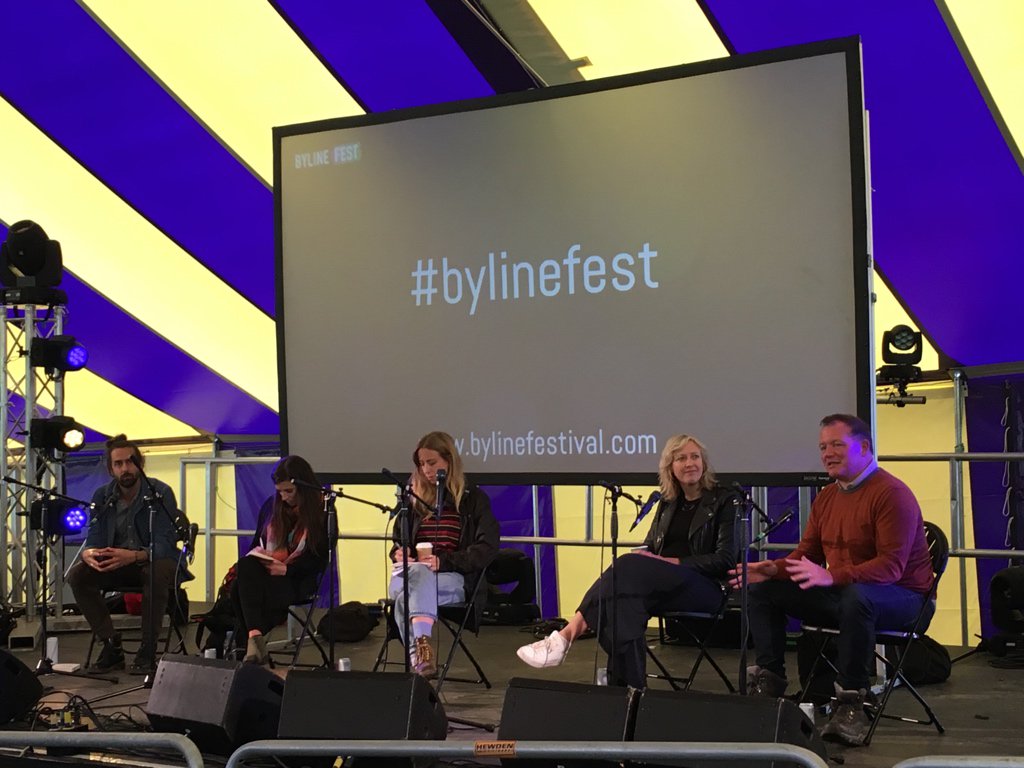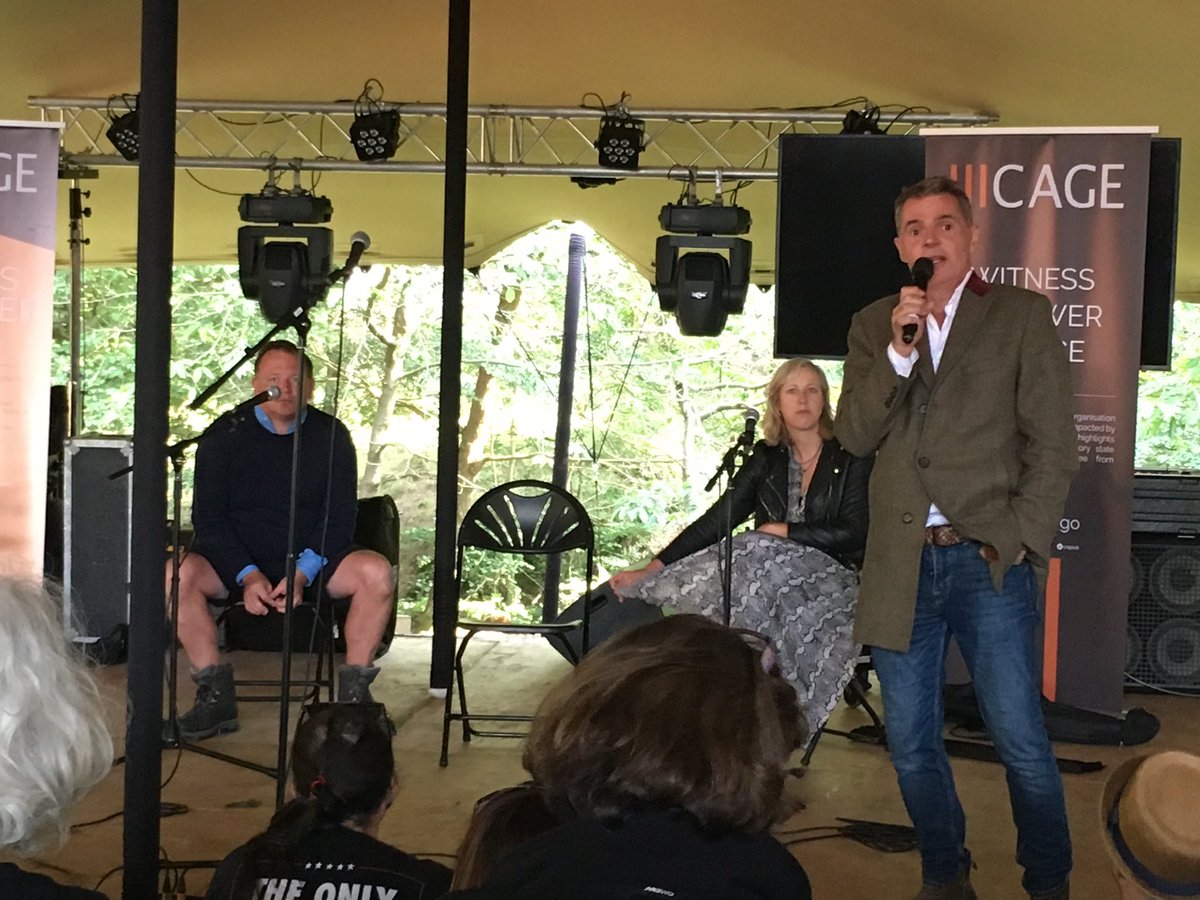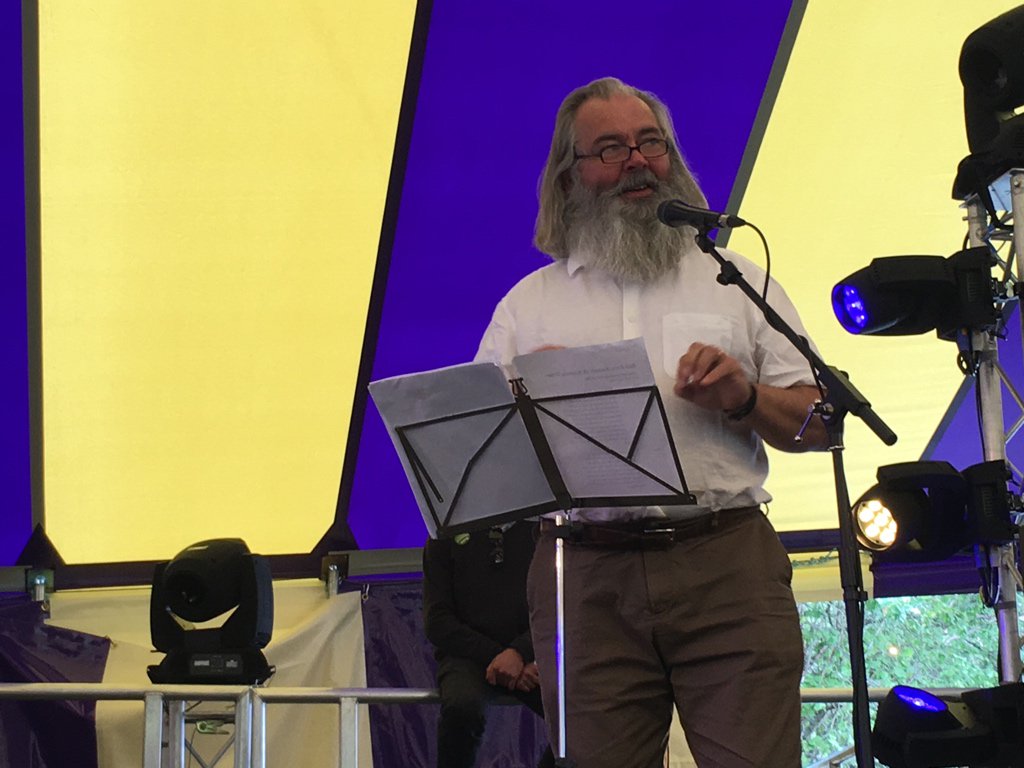Next at @bylinefest “Monstering Muslims in the Media”, hosted by @DrShazadAmin of @mendcommunity and a panel of journalists and academics
#Bylinefest
#Bylinefest
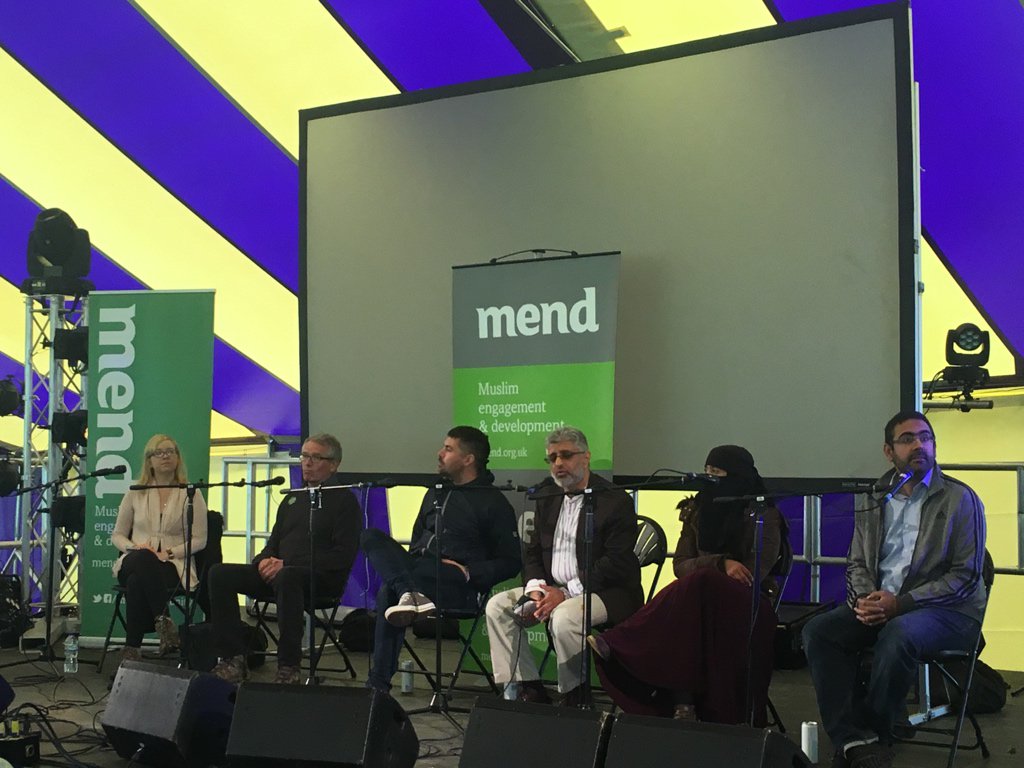
The discussion is started by @BrianCathcart a journalist turned academic. He says that the media has always liked to create monsters. It helps to sell papers to stoke a fear of ‘other’.
Next @richpeppiatt a former tabloid journalist says that essentially your job as a journo at a tabloid is to deliver the story you are told. He tells of one colleague who said she didn’t want to do Muslim-bashing stories, so the editor gave her more every day for weeks.
... she eventually broke down in tears and quit. To his shame he didn’t follow her.
The Express had a silly phone poll every day to make money. Eg Who do you want to win the World Cup, England or Germany, phone now at £1 call to vote. And loads of the readers did!
The Express had a silly phone poll every day to make money. Eg Who do you want to win the World Cup, England or Germany, phone now at £1 call to vote. And loads of the readers did!
But one day the poll was ‘so you support the policies of the English Defence League?’ And the vote was 98% yes. It made the editors sit and say, that’s our audience, that’s what they think and that’s what we should give them.
Next is @miqdaad who says he has been getting papers to agree to correct at least one story a week. In one Daily Mail story he found 16 inaccuracies in just one article. How did that get past the editor? Because it fits the message of the paper and it’s acceptable there.
Next, @SaharAlFaifi who works as a scientific researcher talks about how being a Muslim woman who wears the Niqab talks about her experience, and how the politicians and press comments affect her. 
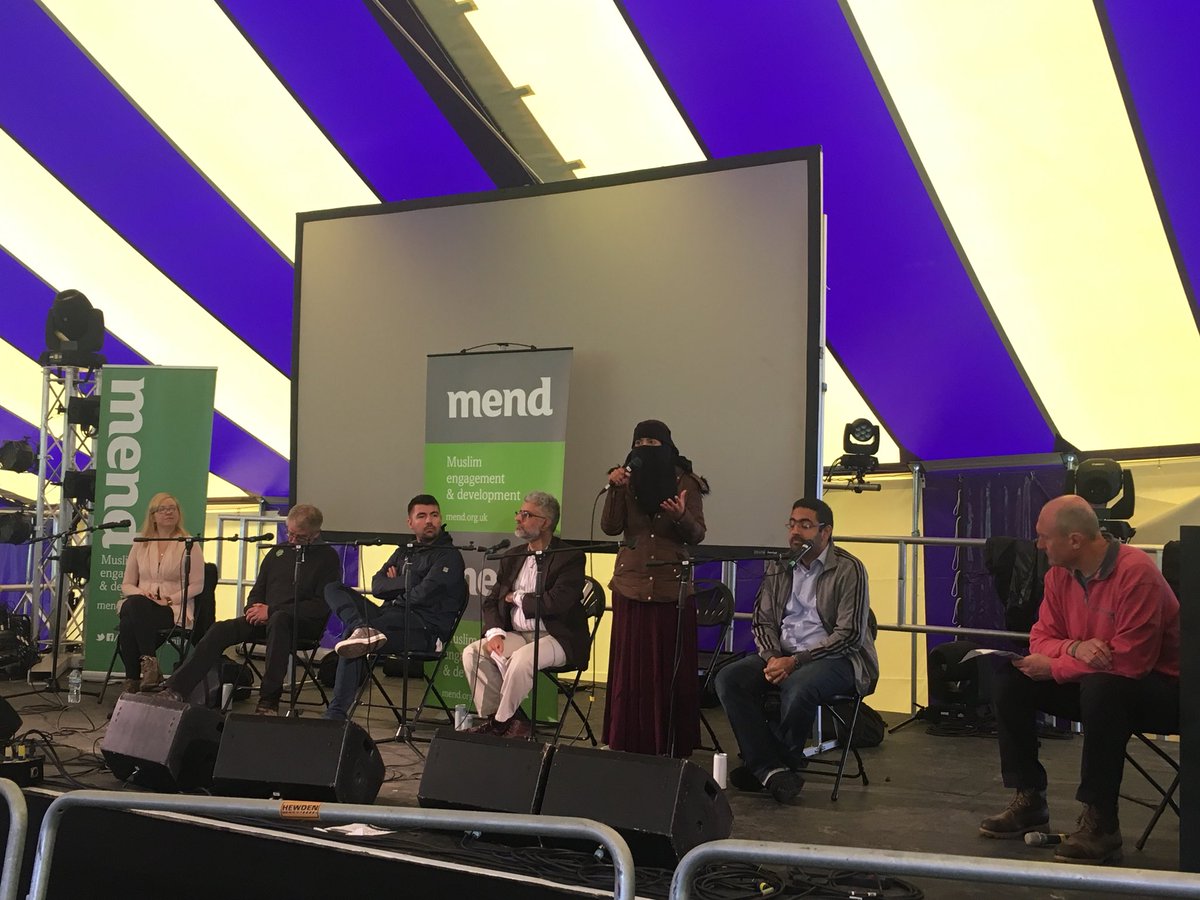
She gives some examples. She was being interviewed by the BBC and someone walking past stopped, looked at her, and said aggressively “You’re a bomber”
When she is out she has to keep in touch with family to let them know where she is and she is alright.
When she is out she has to keep in touch with family to let them know where she is and she is alright.
There is regularly abuse and threats of violence towards her. She says it is a gendered problem, non Muslim men attacking Muslim women.
She says that therefore the comments by Boris Johnson acted to legitimise these kinds of attacks, putting her and her family at greater risk. She says he knew what he was doing, getting attention for himself in a slow part of the new cycle, and appealing to particular audience
Next, Isobel Ingham-Barrow who is the head of research at @mendcommunity, talks about the government’s Prevent strategy for tackling Islamic extremism, saying it verges into old stereotypes of Islam, and then into endorsing Islamaphobia...
... she says the flags that get raised on young people can be so basic and finds it quite troubling. For example, a child studying Arabic can be flagged, a young person criticising British foreign policy is a flag, and so on. So too many innocent young people are being labelled
These prejudices then support and reinforce the media’s own prejudices.
Brian says that another issue is the lack of diversity in newsrooms. Years ago there was research on this, and it found there was basically no diversity. There was a pledge for action, but nothing was done
Brian says that another issue is the lack of diversity in newsrooms. Years ago there was research on this, and it found there was basically no diversity. There was a pledge for action, but nothing was done
He says therefore the journalist writing a story, doesn’t look up from his desk from writing an anti Muslim story, and see someone who is Muslim that they have to look in the eye. And it means there is no true knowledge about Islam in the room.
The chair asks ‘what about IPSO, the self-regulator of the press? Why don’t they act?’
Brian says that @miqdaad has been doing amazing work in forcing them to do something, although it is very hard.
Miqdaad says that part of the problem is the board of IPSO itself...
Brian says that @miqdaad has been doing amazing work in forcing them to do something, although it is very hard.
Miqdaad says that part of the problem is the board of IPSO itself...
...Trevor Kavanagh of the Sun was on the board, but regularly writes anti Muslim pieces. One piece was harshly criticised by MPs and had to be corrected but IPSO didn’t see any reason why he should step down from the board. So how can IPSO be trusted?
And at the same time, the Times recently reported that Police had uncovered 14 plots against Muslims by far right groups. These groups were found to have shared anti Muslim newspaper articles to fuel the anger of their members. So words on paper lead directly to violence
Isobel says there’s a disparity in the reporting. She gives an example of a Muslim woman that was run over by a white man, who then drove back and drove over her again. The story got no coverage. She asks what coverage it would have got if the ethnicity had been reversed?
Richard Peppiatt says there’s an attitude in the news industry about keeping quiet about any dissent with editorial line, it’s very easy to be ostracised from the industry. So journalists don’t speak out and nothing changes. Journalists need to stand up to this
Meanwhile there are a tiny minority of Muslim extremists, who aren’t accepted by the wider community, but they get a wide media platform. moderate organisations like Mend get sidelined and not invited for comment, but extremists seem to be invited on at every turn
An example is given by Miqdaad of an extremist who organised anti British rallies in Luton some years ago. He says he has been kicked out of mosques and is not suppprted by the Muslim community, but gets support from the far right in the US...
... he says his views are so extreme but he gets invited into the BBC and other media platforms regularly. And “he seems to have journalists on speed dial whenever he wants to say something controversial he’s able to just text it to them and they use it”
... Richard says “I can confirm that, he used to text me!”
And so this is the problem, Miqdaad says, in their quest for controversy the media give regular platforms to far right extremists and to extremist Muslims, but never the majority of moderates.
And so this is the problem, Miqdaad says, in their quest for controversy the media give regular platforms to far right extremists and to extremist Muslims, but never the majority of moderates.
And that wraps up this session on Monstering Muslims in the Media at @BylineFest
• • •
Missing some Tweet in this thread? You can try to
force a refresh


